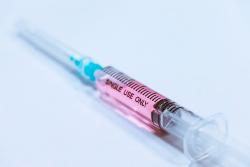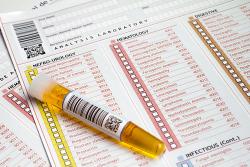 Face-to-face with patients, doctors are expected to do more and communicate better within the same or less time with the patient. It’s the “catch-22” of healthcare’s patient-centered, world. In addition to excellence in clinical care, and a positive outcome, effective and empathetic communications is the essential ingredient.
Face-to-face with patients, doctors are expected to do more and communicate better within the same or less time with the patient. It’s the “catch-22” of healthcare’s patient-centered, world. In addition to excellence in clinical care, and a positive outcome, effective and empathetic communications is the essential ingredient.
 Face-to-face with patients, doctors are expected to do more and communicate better within the same or less time with the patient. It’s the “catch-22” of healthcare’s patient-centered, world. In addition to excellence in clinical care, and a positive outcome, effective and empathetic communications is the essential ingredient.
Face-to-face with patients, doctors are expected to do more and communicate better within the same or less time with the patient. It’s the “catch-22” of healthcare’s patient-centered, world. In addition to excellence in clinical care, and a positive outcome, effective and empathetic communications is the essential ingredient.
The typical “10-minute-and-10-second” doctor-patient encounter is an agenda of important expectations, including:
- Achieving better outcomes
- Achieving greater patient compliance with treatment plan
- Actively and respectfully listening
- Calming fears and answering concerns
- Creating a relationship and a care-team partnership
- Demonstrating cultural and ethnic sensitivity
- Informing the patient of treatment options
- Involving patients in their medical care decisions
- Positive patient experience and satisfaction
- Removing obstacles and objections
- Understanding the patient as an individual
When communications doesn’t work, experts say there’s a part of medicine that doesn’t work. Good communications skills can enhance outcomes, and impact how the patient evaluates their experience with the doctor and the medical practice.
Take 30 with TED: Quick lessons in better listening…
Julian Treasure is a sound authority and business consultant with two TED presentations worth seeing. Both TED talks are engaging and interesting, with valuable guidance for doctor-patient communications.
“We are losing our listening,” Mr. Treasure observes. He offers ways to “re-tune our ears for conscious listening. We spend roughly 60 percent of our communication time listening, but we’re not very good at it. We retain just 25 percent of what we hear.”
Doctors may have a better batting average than that, but, in general, “the premium on accurate and careful listening has simply disappeared. And listening is our access to understanding.” For better listening, understanding and communications, he offers the acronym: RASA, which stands for…
R for Receive – paying attention to the other person;
A for Appreciate – acknowledgment, including small sounds like “OK” or “oh;”
S for Summarize – restate or confirm what you’ve heard; and
A for Ask – to ask questions afterward.
These and other listening tips are included in Julian Treasure’s TED talk titled: 5 Ways to Listen Better. Watch it here.

HAIL: Speaking so that people want to listen…
With the help of another acronym, he also identifies four powerful cornerstones of effective speaking and communications. “HAIL,” as in “to greet or acclaim enthusiastically:”
H is for Honesty – being true in what you say, straight and clear;
A is for Authenticity – just being yourself;
I is for Integrity – being somebody people can trust; and
L is for Love – as in wishing people well; honesty tempered with compassion.

You’ll want to watch the entire presentation here: Speaking so that people want to listen.
Achievement in physician-patient communications is not always an issue of having “more time.” Overall, patients say the encounter, is scored in terms of quality and communications. In fact, patient surveys reflect that 10 out of 18 of the most important factors that represent a high quality doctor relate to communications. Patients find greater satisfaction when the doctor is compassionate, listens, understands their issues, answers their questions and explains the treatment options.
Effective communications enhances satisfaction in the patient encounter, as well as in maintaining a positive patient-provider relationship.
Author information
The post Two Quick Lessons to Improve Doctor-Patient Communications appeared first on Healthcare Success.









